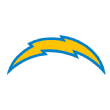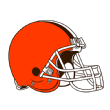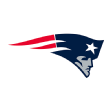In an often-frustrating, injury-riddled 2017 NFL season, we were still blessed with great players and great plays. We ended up with spectacular drama at the end of the season, when Andy Dalton unexpectedly became a blessed idol in western New York by throwing the Bills into the playoffs from 360 miles away. The delightful return of the long-suffering Bills into the postseason came at the expense of the Ravens, who had a 96.7 percent shot of making the playoffs heading into the day, per ESPN's Football Power Index, and needed one of three results to go their way. None did.
I'll get to the playoffs later this week, but for now, let's look back and fill out an awards ballot for the 2017 season. I made picks for these awards after Week 4 and again at the midpoint of the season in Week 9, so we can see how my selections have changed over the course of this topsy-turvy season. I'm also going to throw in a few awards for fun along the way.
Let's begin with one of those made-up awards and credit a player who might have had the most shocking season of all in 2017 ...
Jump to major awards: MVP | Offensive Player of the Year | Defensive Player of the Year | Coach of the Year | Comeback Player of the Year
Written-off Player of the Year
I don't think Case Keenum's own family would have projected him to finish near the league leaders in any statistical category this season. As recently as Week 11, Vikings coach Mike Zimmer needed to stew on his decision before announcing Keenum as his starter over sentimental favorite Teddy Bridgewater. We all expected the bottom to fall out of Keenum's remarkable season, but it never did. In a season in which some bemoaned the lack of viable quarterbacks, a guy nobody would have put on a list of franchise quarterbacks before 2017 played like one all season.
Keenum was on the verge of being benched after Week 10, when he passed for four touchdowns before nearly throwing the game away with two late interceptions in a narrow victory over Washington. From that point forward, he might have been the best quarterback in football. Over his final six games, Keenum was second in completion percentage (70.8), first in touchdown-interception ratio (11:2) and second in passer rating (105.1). Keenum's 2017 season is a testament to what happens when you take a competent quarterback, surround him with talent and play to his strengths instead of bemoaning his weaknesses and turning to the tallest person you can see.

Winner: Case Keenum, QB, Minnesota Vikings
Comeback Player of the Year
After Week 4: Earl Thomas, S, Seattle Seahawks
After Week 9: Thomas
Thomas continued to play at a high level, even as seemingly every other Seahawks veteran on the defense around him went down with an injury this season. He didn't stuffed the stat sheet the way he has in years past, but he (and Bobby Wagner) are the reason Seattle was able to enter Week 17 ranking 11th in defensive DVOA.
As good as Thomas was, what Keenan Allen did over the second half of the season is remarkable. The Chargers wideout led the league in receiving yards from Week 10 on, with 845 yards and five scores. No player converted more third downs than Allen, who generated 30 first downs with no other player converting more than 25.
The other candidate is Rob Gronkowski, who left a reminder about just how great he is when he took over the most important game of the AFC season during the fourth quarter of the Patriots-Steelers contest. Honestly, there's no bad choice between the three of them. Want to pick the best safety of his generation? Go for it. The best tight end in league history? Wouldn't hold it against you. I would lean toward Allen, though, because he's all the way back and playing the best football of his career, whereas Gronk and Thomas aren't quite at their previous level of play, even if they're great.
 Winner: Keenan Allen, WR Los Angeles Chargers
Winner: Keenan Allen, WR Los Angeles Chargers
Hidden Breakout Rookie of the Year
Forgive me for trying to find some semblance of hope for the Browns in what has been the bleakest of bleak seasons. Cleveland finally hit bottom in becoming the second team in league history to go 0-16, but the solace which might come with knowing the Browns have the first and fourth overall picks has to be tempered by the idea of Hue Jackson continuing to coach those draft picks.
The brightest light for the 2017 Browns, though, is the guy they chose with the first overall pick. It wouldn't have been easy to see unless you were a masochist who chose to watch the Browns on a weekly basis, but Myles Garrett is already a superstar. Garrett missed six games with various injuries, but he racked up seven sacks and 18 quarterback knockdowns in the 10 games he did play. Those are identical figures to what Brian Orakpo put together over a full 16-game campaign.
Project Garrett over a full season and you end up with 11 sacks and 29 knockdowns, the latter of which would have ranked third in the NFL. He's also doing this on a Browns team that had no second pass-rusher after Emmanuel Ogbah went down and faced just 525 pass attempts as opponents with leads ran out the clock. Plenty of pass-rushers make their hay by picking up sacks when they know the other team has to pass. The Browns haven't been in that situation once during Jackson's reign. Garrett is already a star, and he has the potential to be a top-three pass-rusher in the NFL if the Browns ever turn things around.

Winner: Myles Garrett, DE, Cleveland Browns
Defensive Rookie of the Year
After Week 4: Tre'Davious White, CB, Buffalo Bills
After Week 9: White
So, with no other rookie pass-rusher besides Garrett playing well enough to receive votes, this battle comes down to two players: White and Saints cornerback Marshon Lattimore. With all due respect to guys like Jamal Adams and Marcus Williams, who have spent the season playing safety at a high level, it would be shocking if one of these two corners didn't win the award.
I don't think anybody would argue that Lattimore has been anything but the best rookie corner in the league when he has been on the field. No team has asked more of any rookie corner than the Saints of Lattimore, and he has consistently come through. Much of the Saints' improvement can be traced to Lattimore's presence; consider that through Week 16, they had allowed a passer rating of just 74.3 with Lattimore in the lineup, which rose to 97.2 when Lattimore was on the bench or injured. (Data for Week 17 isn't yet available.)
White's candidacy, then, is based on availability. Lattimore missed three games and played only six snaps in a fourth, costing him what amounts to one-quarter of the season. He played 711 defensive snaps. White didn't miss a game and played 98.6 percent of Buffalo's defensive snaps. The 27th overall pick, White made it all the way to 1,056 snaps, more than any other rookie defender. And while he might best be known for incurring Gronkowski's wrath on a cheap shot that earned Gronk a one-game suspension, White has been an above-average cornerback all season.
This race should be closer than some people make it out to be, if only because availability should matter. Twelve games from Lattimore and four games of P.J. Williams as a starting cornerback isn't the same thing as 16 games of Lattimore. At the same time, though, Lattimore was playing Pro Bowl-caliber football when he was on the field. He looked like one of the best cornerbacks in the league of any experience level. Even with the missing games, Lattimore has done enough to win this award.
 Winner: Marshon Lattimore, CB, New Orleans Saints
Winner: Marshon Lattimore, CB, New Orleans Saints
Best Offensive Play of the Year We're Sadly Going to Forget
Joining the annals of the Saints' legendary laterals play for a touchdown (which was spoiled by John Carney subsequently missing the extra point) and Jermaine Kearse's tipped Super Bowl catch (foiled by the Malcolm Butler interception), let's throw in what Alex Collins did for the Ravens on Sunday.
Facing fourth-and-3 down 14 points from the Cincinnati 17-yard line in the third quarter, John Harbaugh rightly chose to go for it. The offensive playcall wasn't quite as good of an idea, as the Ravens faked a fullback draw and pitched the ball to Collins, who faced a wall of Bengals defenders. He promptly turned the other way, found a hole, picked up the first down and finished the run for what seemed to be a season-saving Ravens touchdown. The rookie back outran or juked as many as seven Bengals defenders along the way.
What happened later overshadowed Collins' run, but it was as good of an individual effort as we saw from any back this year in a critical moment.
Offensive Rookie of the Year
After Week 4: Kareem Hunt, RB, Kansas City Chiefs
After Week 9: Deshaun Watson, QB, Houston Texans
Injuries have culled the field for Offensive Rookie of the Year. Watson went down with a torn ACL in midseason. Dalvin Cook tore his ACL after a promising start. Leonard Fournette carried the Jags during the first half of the season, but injuries (and a one-game team suspension) cost him valuable snaps as the season went along. Top-10 picks Corey Davis, John Ross and Mike Williams combined to miss 29 games and failed to score a single touchdown.
JuJu Smith-Schuster exceeded everyone's expectations in Pittsburgh and racked up 265 all-purpose yards on Sunday, but forgive me for narrowing the field to the two Pro Bowl rookie running backs in the AFC and NFC. Hunt and Alvin Kamara each punctuated their debut campaigns with big plays on Sunday, as Hunt ran for a 35-yard touchdown just before Kamara took a kickoff return to the house for a 106-yard score, one of two touchdowns he had on the day.
The biggest difference between the two might be timing: Hunt's biggest games came during Kansas City's 5-0 start, only for the Toledo product to go quiet before returning to form during the Chiefs' late-season winning streak. Kamara, meanwhile, got off to a slow start before steadily impacting games in October and November.
Without considering the order in which those yards were gained, a look at the yardage gained from scrimmage by both players is telling. Hunt was a workhorse for the Chiefs, racking up 1,786 all-purpose yards and 11 touchdowns across 326 touches. Kamara, meanwhile, was nearly as productive in a smaller role. He had only 201 touches on offense for the Saints, but they resulted in 1,554 yards and 13 touchdowns.
Kamara's workload is weighted more heavily toward the passing game, which should result in a better average per touch, but the difference in efficiency is dramatic. To put it in context, heading into Week 17, Kamara had racked up more rushing DYAR than Hunt on 120 fewer carries, and that's without considering his comfortable lead as a receiver and the work Kamara has done on returns. As much as I would like to avoid recency bias and reward a player who really was the heart of the Chiefs' offense when it was at its best, Kamara deserves this one.
 Winner: Alvin Kamara, RB, New Orleans Saints
Winner: Alvin Kamara, RB, New Orleans Saints
Coordinators of the Year
I'll get to Coach of the Year in the moment, but it still seems a little bizarre that we don't honor coordinators in an era in which we're all quite aware of how valuable they can be. At the midway point of the season, I mentioned this award and picked Jaguars defensive coordinator Todd Wash, a holdover from the Gus Bradley administration in Jacksonville. Walsh has done excellent work all season and deserves recognition, but I might also want to credit the Jaguars for staying healthy, given that their top 14 players on defense missed a total of three games all season.
Let's honor a guy on either side of the ball. On defense, I think the pick has to be Saints coordinator Dennis Allen. There's talent on defense for New Orleans, but the Saints have struggled for years to turn high draft picks and high-priced free agents into results. Even after losing Nick Fairley and Delvin Breaux before the season started, Allen spent a few weeks tinkering with the secondary before eventually inserting Ken Crawley into the lineup and finding a steady unit. Allen coaxed a career year out of Cameron Jordan and got contributions from guys who were backups elsewhere, like Alex Okafor and A.J. Klein, each of whom are now on injured reserve. As good as the Saints' running game has been, they're not a playoff team without this defense.
On offense, I'll give the nod to Vikings coordinator Pat Shurmur. He was overmatched as a game manager and head coach during his time in Cleveland, but he has kept the Vikings' offense afloat despite losing his starting quarterback (Sam Bradford) and running back (Cook) to season-ending injuries by Week 5. Minnesota has gotten lucky in some ways -- Keenum fell into its lap and Alshon Jeffery turned down its free-agent offer, which kept a starting job open for Adam Thielen to have his breakout season -- but Shurmur has built an offense that ranked seventh in DVOA heading into Week 17 with one of the least-expensive units in football.


Winners: Dennis Allen, New Orleans Saints, and Pat Shurmur, Minnesota Vikings
Coach of the Year
After Week 4: Andy Reid, Kansas City Chiefs
After Week 9: Doug Pederson, Philadelphia Eagles
Reid dropped out of the picture when his Chiefs pulled the rare Meadowlands sweep in losing to both the Giants and Jets in New Jersey. Pederson's a top candidate, although some steam has come off his case after Carson Wentz tore his ACL. The Eagles have gone 2-1 over the three ensuing games, but that included narrow victories over the Giants and Raiders and a loss to the Cowboys with Nate Sudfeld at quarterback.
I would ride for Bill Belichick, although he never garners serious consideration for an award despite the fact that we all think he's the best coach in football. The Patriots finished with the league's best record despite losing Julian Edelman before the season. Their defense coalesced after a horrible start and continued to improve throughout the season. New England rolled on and even thoughtfully developed a franchise quarterback for the 49ers along the way.
It seems like Sean McVay is the consensus favorite to win this award, though, and I can't make a strong argument against that. Maybe you give Wade Phillips some of the credit for helping take the Rams' defense to the next level, but what McVay has done is unprecedented. Scott Van Pelt pointed out on SportsCenter that the 2017 Rams are the first team in modern league history to go from last in scoring offense to first, and they did it while essentially taking Week 17 off to rest.
McVay accomplished this without changing his quarterback or adding a running back. He did bring in a new left tackle, Andrew Whitworth, and acquired a trio of new receivers, but the two most impactful wideouts were a third-round pick (Cooper Kupp) and a block-first wideout who was an anonymous starter for the Bills (Robert Woods). We're probably too quick to praise turnarounds as opposed to steady success -- look at how quickly Jack Del Rio went from franchise savior to unemployed in Oakland -- but few turnarounds have ever been more significant than what McVay has pulled off in Los Angeles.
 Winner: Sean McVay, Los Angeles Rams
Winner: Sean McVay, Los Angeles Rams
Defensive Play of the Year
I'm partial to NFL players making other NFL players look like high schoolers, so let me call your attention to Cameron Jordan's bull-rush of Lions swing tackle Brian Mihalik back in Week 6. With Mihalik coming into the game for Rick Wagner at right tackle, Jordan took advantage of an opportunity, got underneath Mihalik and shoved him backward into Matthew Stafford for a sack. It is, at least to my knowledge, the only time this season in which a defensive lineman sacked a quarterback without actually touching him.

Winner: Cameron Jordan, DE New Orleans Saints
Defensive Player of the Year
After Week 4: DeMarcus Lawrence, DE, Dallas Cowboys
After Week 9: Lawrence
This has been the most difficult award to hand out all season, and I don't think it has gotten much easier. Lawrence was in good shape to come away with the nod after a two-sack performance in Week 13 got him to 13.5 sacks, but he racked up just one sack over the final quarter of the season. It's tough for a player on a team that didn't make the playoffs to win a personal award like this unless he blew away the competition, and Lawrence didn't finish the job with his late-season slump.
There's a better version of Lawrence's résumé in Arizona, where Chandler Jones separated from the pack. Jones cleaned up on Sunday in Seattle with a pair of sacks of Russell Wilson, giving the former Patriots star a league-leading 17. Nobody else has more than 14.5. Jones isn't a foolproof pick, though, because the Cardinals had been toiling in anonymity since November.
If it's not Jones, though, then it's a mishmosh of superbly talented players who are likely to split each other's votes. Can you really pick Calais Campbell (14.5 sacks, three forced fumbles) from the Jaguars over teammate Yannick Ngakoue (12 sacks, six forced fumbles) or shutdown cornerback Jalen Ramsey? Is Everson Griffen the best player on the Vikings' defense when Harrison Smith looms at safety? Cameron Jordan or Marshon Lattimore? Joey Bosa or Melvin Ingram?
The strongest standalone case from a contender belongs to Aaron Donald, who was virtually unblockable while racking up 11 sacks and five forced fumbles. Donald also missed the opener and sat out Week 17, which hurts, given that he might have approached the league leaders if he had played well in both games. Cam Heyward (12 sacks and 22 quarterback knockdowns) is in the same league with Donald, although neither has the sort of production that would make them favorites to win this award.
Without the obvious favorite, I think this will end up with a split vote between a few different candidates. It might be overly simplistic, but I don't think you can go wrong taking the guy who transformed the league's best defense. Campbell has been a massive two-way force for a decade now, and as much talent as there is in Jacksonville, his presence totally changed the Jags' defensive line. Ngakoue and Malik Jackson were good last season, but Campbell has helped make the guys around him into stars, too. This is a bit of a lifetime achievement award in some ways, but few players in the NFL have been more underrated or for a longer period of time than the former Cardinals star. No more.
 Winner: Calais Campbell, DE, Jacksonville Jaguars
Winner: Calais Campbell, DE, Jacksonville Jaguars
The Position-free Player of the Year Award
I'll get to MVP in a moment, but let me start with a different sort of value award. Positional scarcity comes into play with the MVP nod, but let's approach the question from a different perspective. Which NFL player is best relative to his peers at the same position?
Phrased that way, a lot of the obvious candidates fall by the wayside. Todd Gurley is great, but is he that much better than Le'Veon Bell? Did Tom Brady truly outperform Carson Wentz by all that much? We can throw most of the skill-position guys out the window, and the pass-rushers clump together. I don't think there's an obvious defensive player in the mix.
I see three candidates. I'm putting Rob Gronkowski third. As uncoverable as Gronkowski can be as a receiver, I would argue that Travis Kelce isn't far behind Gronk as a receiver at this point. The difference is that Gronkowski might also be a top-five blocker at tight end. Gronkowski could have lost four fingers in a party accident and would probably still have a 10-year career as an in-line blocker. He's that good, and we never notice because he spends the rest of his time clowning defenders as a receiver.
The other two players are specialists. I'll put Johnny Hekker at No. 2, given that he has consistently ranked among the two best punters in football over the last several seasons and kept it up in 2017. Hekker was the default pick as the best punter in the league after Pat McAfee retired this season, but rookie Colts replacement Rigoberto Sanchez led the league's most productive punting unit with help from some excellent coverage teams and the league's second-most fair catches forced. Hekker and the Rams finished second in net punting average, although he did convert only one of his three fake punt attempts into a first down. The success of the offense also strangely marginalized Hekker, who was needed to save the Rams and flip field position far less frequently this season. I suspect he won't be complaining about the rest.
First prize goes to Justin Tucker, who continues to be the best kicker in football. By Football Outsiders' numbers, Tucker was 18 points above average on scoring plays for the Ravens through Week 16, placing him nearly five points ahead of second-place finisher Robbie Gould. Since the start of 2016, Tucker has been worth 43.5 points above average on field goals and extra points. Tucker has made seven more field goals than anybody else in football, hit on each of his 63 extra-point attempts and missed only two kicks inside 50 yards. All while playing in Baltimore. No kicker is more automatic.

Winner: Justin Tucker, K, Baltimore Ravens
Offensive Player of the Year
After Week 4: Kareem Hunt, RB, Kansas City Chiefs
After Week 9: Tom Brady, QB, New England Patriots
Most Valuable Player
After Week 4: Brady
After Week 9: Carson Wentz, QB, Philadelphia Eagles
As always, we have to discuss the two most notable awards in tandem, but there isn't much to say beyond what I covered last Monday in the two-man race between Brady and Todd Gurley.
The Rams sat Gurley in a meaningless Week 17 loss to the 49ers, which was wise for their playoff chances but prevented Gurley from making a final impression in the MVP race. Brady, meanwhile, was mediocre in a 26-6 victory over the Jets, going 18-of-37 for 190 yards with two touchdowns. He spent most of the day under siege by the Jets' defense, but Brady also missed a couple of throws, including a would-be touchdown to Brandin Cooks. Neither player added anything to their MVP candidacy, and while there were big games from fringe candidates like Kamara, I don't think anyone else did enough to enter the picture.
With that in mind, then, I have to fall back on what I said last week. Gurley has been incredible this season as an absolute workhorse for the Rams, but history tells us that modern running backs need to do something historical to win this award, even in a year with no dominant quarterbacks. There is no otherworldly number for Gurley. He finished with 2,093 yards from scrimmage and 19 touchdowns, each of which led the league, but neither ranks in the top 25 all time.
Brady's soft close to the season didn't help his case, but he still finishes with the league lead in passing yards (4,577) and ranked in the top five in completion percentage, yards per attempt, passing touchdowns, passer rating and Total QBR. He did this without his most frequent target from 2016 after Edelman tore his ACL, and with Chris Hogan limited to 1 receiving yard after Week 8.
I can't see giving it to any of the other major quarterbacks, either. Alex Smith was a candidate to be benched in midseason. Drew Brees slipped noticeably and relied heavily on his running game. Wentz was the best QB on the field before tearing his ACL, but there's not a strong track record for QBs missing three games and still winning the award. Wilson faded in December. Ben Roethlisberger threw 14 picks and was 13th in passer rating. Jared Goff voters would likely steer their votes toward Gurley. Case Keenum deserves consideration and was third on my ballot, but would he really be a better choice than his teammate on the perfect 53-man roster from before the season?
It boils down to this: Unless there's a completely overwhelming case for a player at another position to win this award, you go with the best quarterback. Gurley's season doesn't quite meet that definition to me. I wouldn't say this was a transcendent Brady season, but like his coach, the Patriots' quarterback has set the bar artificially high thanks to great football year after year. While it would have been fascinating to see what might have happened if the Patriots had turned their starting job over to Jimmy Garoppolo this offseason, I think Brady's your 2017 MVP.

 Offensive Player of the Year winner: Todd Gurley, RB, Los Angeles Rams
Offensive Player of the Year winner: Todd Gurley, RB, Los Angeles Rams
Most Valuable Player winner: Brady
